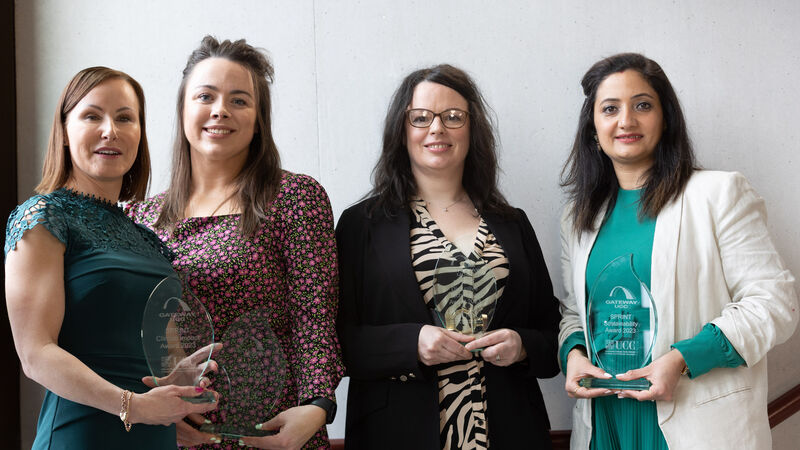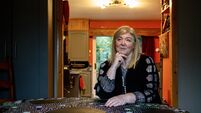Female researchers take top awards

Winner of the Critical Impact Award, Dr Siobhain O’Mahony, APC Microbiome Ireland, winner of the One To Watch Award , Dr Julie O Sullivan, APC Microbiome Ireland, winner of the Disruptive technology Award Dr Brenda Long , School of Chemistry ,UCC ERI and winner of the Sustainability Award Dr Shivani Pathania, Teagasc at the 7th GatewayUCC SPRINT Awards.
DR Brenda Long, a recent recipient of a SPRINT award, wants to change how we travel. More specifically, her work will change the type of vehicle we sit ourselves into.








 App?
App?


